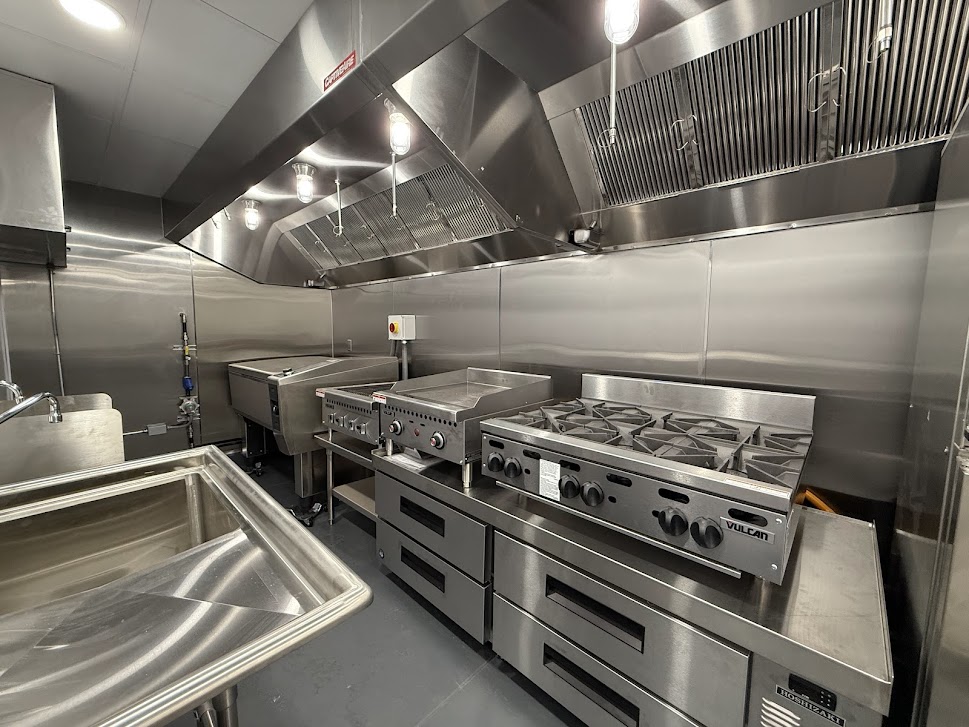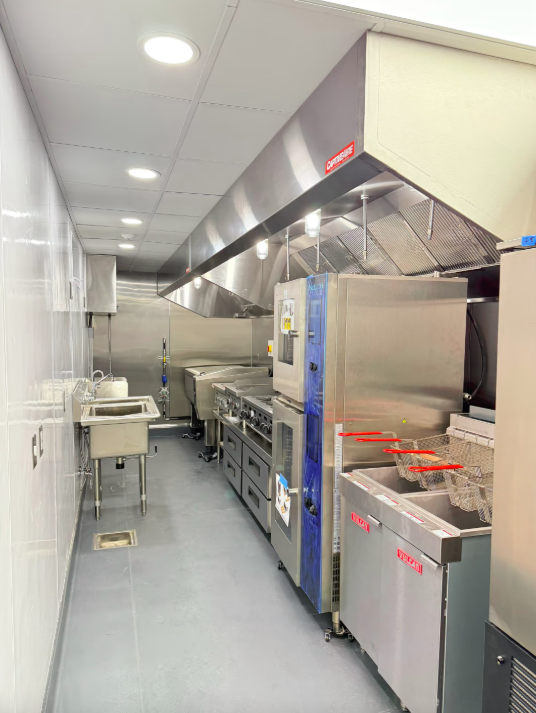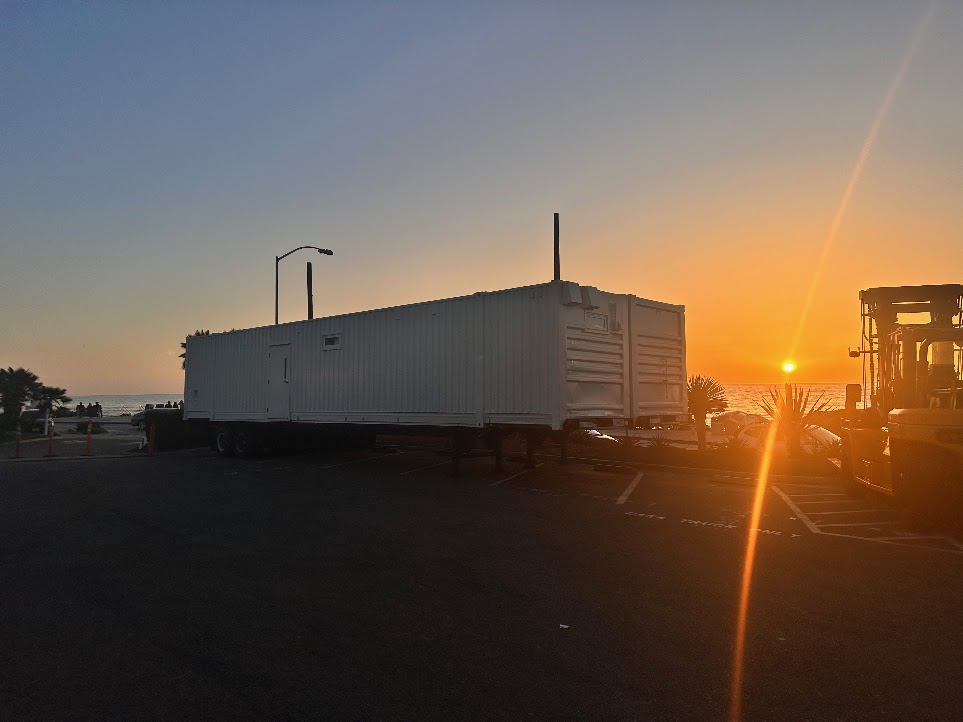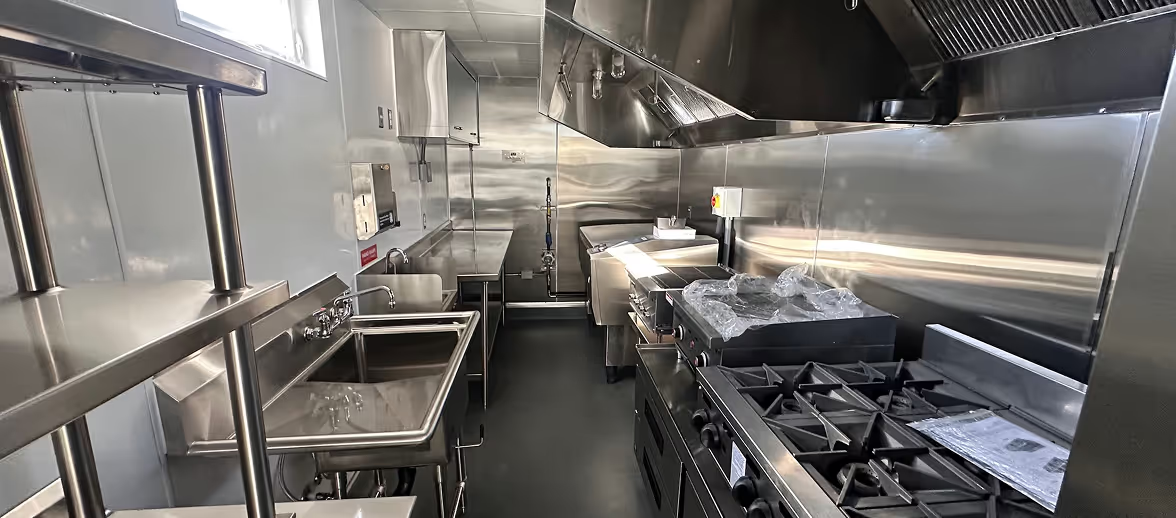%2520(1).jpeg)
Introduction
Did you know hidden expenses in mobile kitchen rentals can unexpectedly increase your budget by as much as 30%? According to industry research, nearly 2 out of every 5 hospitality businesses underestimate the actual costs involved in renting mobile kitchen units, leading to unforeseen financial stress. While mobile kitchen rentals offer convenience, flexibility, and scalability for hospitality operations, it's crucial to factor in these often overlooked costs to prevent budget overruns. To learn more about mobile kitchen rentals, read our detailed ultimate guide here!
Hidden expenses can range from unexpected installation and site preparation fees to ongoing operational costs such as utilities, permits, insurance, and maintenance. Without a comprehensive understanding of these potential charges, hospitality businesses may experience disruptions or be forced into emergency budgeting.
This article highlights eight critical hidden expenses associated with mobile kitchen rentals that you must consider before finalizing your rental agreement. By carefully reviewing these areas, you can effectively budget, mitigate financial risks, and avoid costly surprises.

Deposit
Renting a mobile kitchen trailer is an enticing option for food service providers and hospitality businesses seeking a temporary yet professional kitchen setup. However, deposits are among the critical factors you should carefully consider as they can significantly impact your upfront budgeting and cash flow.
Although technically not a direct cost, deposits play an essential role in the rental process. A deposit can be either refundable or non-refundable. Refundable deposits serve as security against potential damages, unpaid rent, or lease violations. These deposits are returned at the end of the rental period if the mobile kitchen trailer is in good condition and all lease terms have been fulfilled. Conversely, non-refundable deposits are often charged as reservation fees or administrative costs, and businesses should be clear on their terms to avoid misunderstandings.
Estimated Cost:
The amount of the deposit may vary but is often equivalent to one or two months’ rent.
Tips to Manage Costs:
- Carefully document the initial condition of the mobile kitchen with photos or videos.
- Clearly understand and confirm in writing the terms regarding refund conditions.
- Ensure transparent communication with the rental provider regarding deposit expectations.
For more detailed information, refer to the IRS Guide on Rental Deposits.
Shipping
The initial price quoted for your mobile kitchen rental often does not include transportation costs, making shipping a critical hidden expense to consider. Delivery costs are primarily determined by trailer size (typically ranging from 20’ to 53’), distance, and the urgency of delivery. Larger trailers require bigger trucks, leading to increased fees.
Additional factors like fuel surcharges, expedited delivery requests, or special permits can further elevate the costs.
Estimated Cost:
Average shipping fees generally fall between $1-$2.5 per mile.
Tips to Manage Costs:
- Always clarify the delivery radius covered by the rental provider.
- Ask about any tiered fees, fuel surcharges, and expedited delivery charges upfront.
- Plan your delivery schedule in advance to avoid rush charges.
For more detailed insights on transportation regulations and fees, refer to the U.S. Department of Transportation.
.jpeg)
Site Prep, Utility Connections & Restoration
Delivering and setting up a mobile kitchen trailer requires careful groundwork to ensure a smooth installation process. The chosen site must be accessible, level, and adequately prepared to accommodate the trailer. If the site isn't initially suitable, additional grading, landscaping, or structural modifications may become necessary, incurring unexpected costs. Additionally, restoring the site to its original condition post-rental can add further expenses.
Utility connections (water, gas, and electricity) can significantly impact your overall budget. These costs depend on the site's proximity to utilities, local regulations, and site-specific challenges like terrain and existing infrastructure.
Estimated Cost:
- Site Preparation and Restoration: Typically between $500–$5,000+, depending on complexity. (Common cost areas include landscaping, grading, access modifications, and post-rental site restoration.)
- Utility Connections: Installation generally requires at least half a day and varies based on site complexity and distance from utilities. (Separate hookups may be needed for water, gas, and electricity.)
Tips to Manage Costs:
- Hire a qualified general contractor, electrician, or plumber to streamline installation and avoid unexpected issues.
- Familiarize yourself with local utility and regulatory requirements.
- Review your rental provider’s guidelines to understand specific utility connection requirements.
Note: As a manufacturer of mobile kitchen trailers, Mobile Culinaire has designed single utility connection points to reduce installation costs. Check our FAQ page for utility connection requirements.
Add-Ons and Essential Equipment
If your mobile kitchen rental site lacks essential utilities like gas, water, or sewer systems, additional equipment such as electric generators, wastewater tanks, or grease traps will be necessary. These crucial items typically incur additional daily fees, potentially adding significantly to your budget.
Additional specialized equipment, such as fryers, refrigeration units, and ovens, can also come with extra charges. Furthermore, opting for sustainable or eco-friendly equipment often involves upcharges, though these choices can enhance operational efficiency and reduce environmental impact.
Estimated Cost:
Typically ranges from $10–$100 per day, per equipment item, depending on type and complexity.
Tips to Manage Costs:
- Assess your site thoroughly in advance to identify necessary add-ons and plan your budget accordingly.
- Explore cost-effective alternatives which offer turnkey solutions, reducing the need for multiple additional pieces of equipment.
Note: Mobile Culinaire offers convenient leasing options for generators, decks, ramps, wastewater tanks, and grease traps to simplify setup processes.
To know more about essential add-ons for your mobile kitchen rental, read our article here.

Permits
Operating a mobile kitchen involves navigating a complex set of local regulations. Each municipality may have unique requirements regarding health inspections, fire safety, zoning, and general operational permits. While some jurisdictions have relaxed guidelines, others demand strict compliance, multiple approvals, and even periodic renewals, especially in public or commercial locations. In most cases, securing the necessary permits and passing inspections is required before beginning operations.
Estimated Cost:
Permit fees can range from $50–$500 depending on your location, type of operation, and local agency requirements.
Key Permit Categories:
- Health Department Permits: Necessary to ensure food safety compliance, often involving regular inspections. For a comprehensive overview, refer to the CDC’s Food Safety Guidelines.
- Fire Safety Clearances: Mobile kitchens must comply with fire codes such as NFPA 1 and NFPA 96. This includes fire suppression systems, ventilation, and fuel safety.
- Zoning and Building Permits: Ensure your mobile kitchen setup complies with local zoning laws and site use regulations.
Note: To know more about essential permits for mobile kitchen trailers, read our article here.
Tips to Manage Costs:
- Contact your local Health Department, Fire Marshal, and Building Department early to clarify all requirements.
- Document all communication and store your permits and inspection records securely.
- Monitor changes to local ordinances that could affect your operation.
By proactively addressing permits and regulations, you can avoid costly delays and ensure your mobile kitchen runs legally and efficiently.
Cleaning, Maintenance & Repairs
Cleaning, maintenance, and repair responsibilities can introduce additional expenses during or after your mobile kitchen rental period. While daily cleaning and basic upkeep are typically the renter’s responsibility, deeper sanitation may be required, especially after long-term rentals or particularly high-volume operations. In some cases, rental agreements include stipulations that require professional cleaning before return.
Equipment maintenance and emergency repairs are another potential hidden cost. If kitchen appliances or systems experience excessive wear or break down during use, renters may be held liable for repair or replacement, depending on the terms of the agreement.
Estimated Cost:
- Deep Cleaning Fees: Average between $250–$1,500 depending on size, usage, and required sanitation levels.
- Maintenance & Repairs: Range from $50–$1,000+ per equipment item, depending on the issue and its severity.
Tips to Manage Costs:
- Perform regular cleaning and minor upkeep throughout the rental period to avoid high final fees.
- Clarify who is responsible for maintenance and emergency repairs in your lease agreement.
- Document equipment condition on delivery and return to avoid disputes.
Note: Mobile Culinaire’s mobile kitchen rentals are built with easy-to-clean surfaces such as stainless steel and vinyl flooring, which reduce cleaning labor and costs. Their high-quality commercial-grade appliances are also engineered for durability, minimizing repair risks.
.jpeg)
Contract Adjustments: Early Termination or Extensions
Unexpected changes in your project timeline can lead to additional costs if your mobile kitchen rental contract isn’t structured with flexibility in mind. Whether you need to end your agreement earlier than planned or extend the rental period due to project delays, contract adjustments often come with penalties or upcharges.
Early termination fees are common and can be substantial. On the other hand, extensions may incur higher daily rates or trigger administrative fees, particularly if they fall outside standard rental terms or interfere with upcoming bookings.
Estimated Cost:
- Early Termination Fees: 10%–30% of the remaining rental balance.
- Extension Costs: Vary by provider, but may include higher daily rates or flat-rate extension fees.
Tips to Manage Costs:
- Review all contract clauses related to cancellations, modifications, and extensions before signing.
- Negotiate terms that allow for reasonable flexibility in case of schedule changes.
- Communicate any potential timeline shifts to your rental provider as early as possible.
Insurance Premiums
Even though insurance is often viewed as a protective measure, many mobile kitchen rental agreements include mandatory coverage requirements. These policies are designed to protect both the renter and the provider from liability, equipment damage, or worker-related incidents. However, securing the necessary insurance can result in additional, and sometimes significant, costs.
Depending on your provider and the level of risk associated with your operation, you may be required to extend your existing business insurance or purchase a new policy altogether. Coverage types may include liability insurance, equipment insurance, and worker’s compensation, each with its own premium structure.
Estimated Cost:
Typically range from $500 to $2,000 per month, based on coverage limits and business size.
Tips to Manage Costs:
- Review the rental agreement to confirm what insurance is mandatory.
- Shop around for quotes and consult your current insurer about policy extensions.
- Ensure your coverage adequately protects against property damage, injury, and liability claims.

How Mobile Culinaire Supports You
Industry-Leading Mobile Kitchens
Unlike many retrofitted trailers on the market, Mobile Culinaire units are designed from the ground up as purpose-built commercial kitchens. Our trailers offer the same level of functionality, comfort, and efficiency as a brick-and-mortar kitchen without compromise. From layout to ventilation, every detail is thoughtfully engineered to meet the standards of high-volume foodservice professionals.
Upfront Transparency on Pricing
We clearly outline what’s included in our pricing and our T&C. You’ll never be caught off guard by ambiguous reservation fees or unclear lease terms, ensuring better control over your upfront costs.
Simple & Assisted Installation
Our trailers are designed with single utility connection points, significantly reducing installation time and labor costs. We also offer detailed site preparation guidance to help you avoid expensive groundwork or restoration. In addition, we coordinate shipping directly to your location and assist your contractor during the installation process, ensuring everything is set up correctly and efficiently from day one.
Code Compliant Mobile Kitchen
All of our mobile kitchens are engineered to comply with health, fire, and zoning codes. We supply supporting documents and guidance to help you obtain necessary permits quickly and cost-effectively, minimizing delays and reinspection fees.
Commercial Grade Kitchens & Equipment
We use commercial-grade appliances and materials like stainless steel and non-slip flooring to ensure long-term durability and ease of cleaning. This reduces your exposure to maintenance, damage, or deep-cleaning charges after use.
Flexible Rental Agreements
Project timelines change and we get that. Our flexible contracts come with clear terms on extensions, early terminations, and modifications, so you’re never stuck with unexpected penalties or inflated extension fees.
Conclusion
Hidden costs in mobile kitchen rentals can quickly add up and disrupt your budget if left unaccounted for. From site prep and shipping fees to insurance premiums and contract adjustments, understanding these potential expenses is key to planning effectively and avoiding financial surprises.
By partnering with a reputable provider like Mobile Culinaire, you benefit from transparent pricing, thoughtful equipment design, and expert guidance every step of the way. With the right planning and support, your mobile kitchen rental can be as seamless and cost-effective as possible, freeing you to focus on what matters most: serving great food.
To learn more about how we can support your next project, visit Mobile Culinaire.
%2520(1).jpeg)
People Also Ask (FAQ)
What are common hidden costs in renting a mobile kitchen?
Common hidden costs include deposits, shipping, site preparation, permits, insurance premiums, and cleaning and maintenance fees.
Can I extend my mobile kitchen rental if needed?
Yes, most rental contracts allow extensions, but they may come with increased daily rates or adjustment fees. It's important to negotiate flexibility in your contract before signing.
Is insurance required for a mobile kitchen rental?
In many cases, yes. You may need to extend your existing coverage or purchase a new policy, depending on the rental company’s requirements.
Testimonial

"What is standing out when you look at the mobile kitchen operation is the efficiency that we can really achieve because it's built for that."
Tell us about your kitchen needs and request a quote.
.png)
Turnkey mobile kitchen
.png)
Proudly made in-house in the USA
.png)
Commercial grade kitchen equipment
.png)
Code-compliant
Trusted by Industry Leaders




.gif)

%20(1).avif)
%20(1).avif)
%20(1).avif)